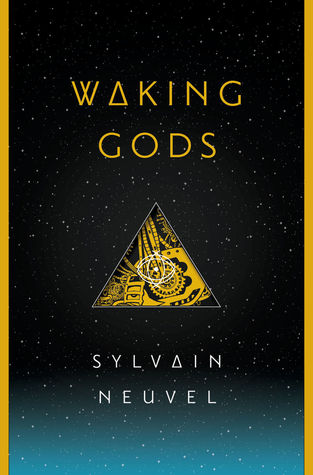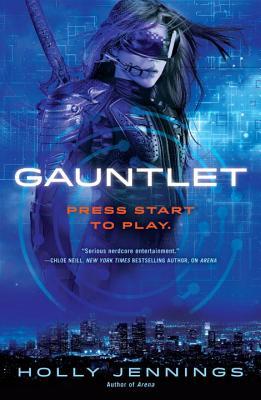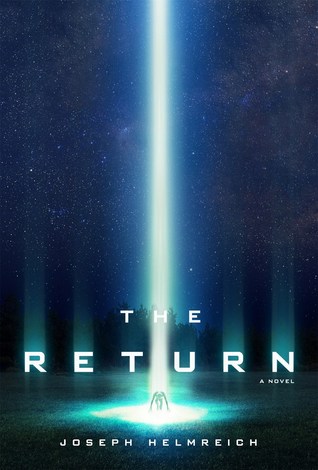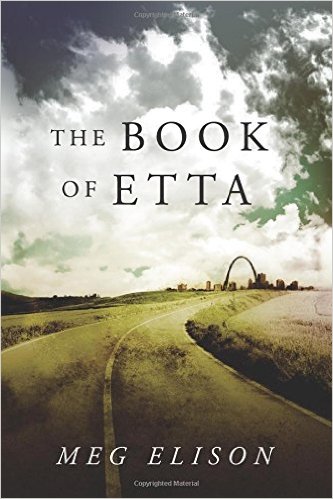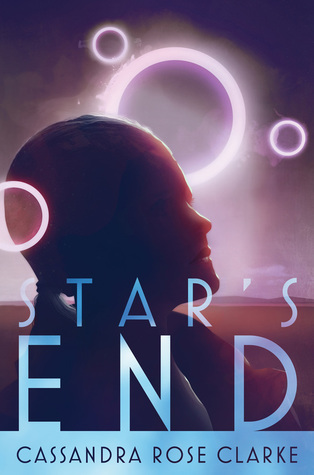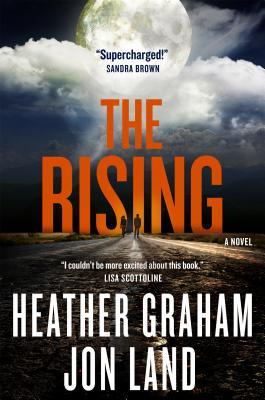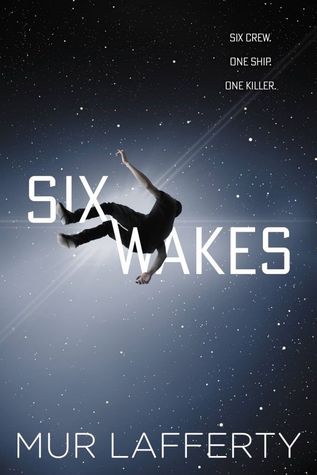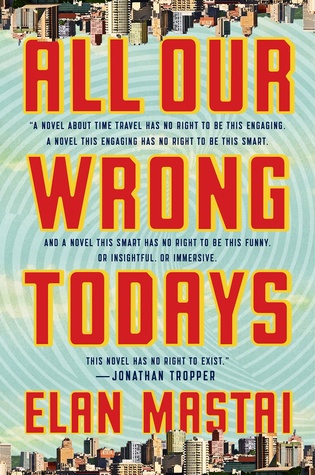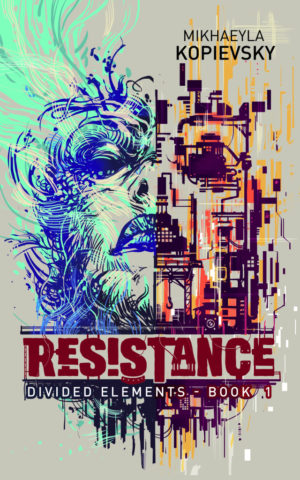I had a blast reading Sleeping Giants last year, and despite some issues with the format, I enjoyed Neuvel’s original take on the alien invasion story. If you haven’t read Sleeping Giants, the story revolves around Dr. Rose Franklin, who finds a giant robot hand as a girl, and later becomes a renowned scientist who discovers that the hand is one piece of a very large alien robot. Sleeping Giants tackles the tale of how Rose and her crew are able to locate all the pieces of Themis, which just happen to be scattered all over the world, and put them back together again. Once that’s accomplished, the characters try to figure out the purpose of Themis—why she’s here and what she does. Now in the second book of the series, Neuvel takes the exciting premise of the first book and injects it with a shot of adrenaline, raises the stakes and gives us a terrifying look at what an alien invasion might be like. If I was intrigued by all the science and alien engineering in the first book, I was scared out of my mind this time around. This is no E.T., it’s more like War of the Worlds,…
Get ready, because it’s time to enter the arena again. Gauntlet is everything a reader dreams of in a sequel—bigger world, higher stakes, and even more dangerous and violent challenges. I had a really good time with the first book, but at the same time I was also curious to see how this follow-up would build on its potential and whether or not it would improve on a few of the weaknesses. Quite a lot has happened since the end of Arena. With her RAGE tournament winnings and money she made from her new found fame, our protagonist Kali Ling has returned to buy out Defiance, becoming the captain and owner of her gaming team. When the story begins, Kali is troubled by a new development that has been sweeping the virtual gaming world—a house. Though in truth, this “house” is more of a colossal mansion. Nicknamed “The Wall”, it sits nestled on a sprawling estate sealed away from the public. For weeks, rumors have been flying around that the best gaming teams from around the world have been invited inside, but no one knows what goes on during these visits. Wild parties? Drugs? Not knowing is driving Kali crazy,…
Based on its topics, The Return is what I would describe as hard science fiction—lots of heavy emphasis on technical details, especially surrounding the fields of astronomy and quantum physics. The result is a lot of complex and advanced scientific theory going over my head and plenty more technobabble I’m sure I didn’t quite grasp. So why did I enjoy this book much? Well, for one thing it was thoroughly addicting. Combining an altogether engaging sci-fi premise with the fast-paced intensity of a breathless thriller, Joseph Helmreich’s clever debut is a wild and unexpected journey worth taking. The day humanity found out that it was not alone in the universe began just like any other, with the exception of a few pockets in the scientific community all abuzz with the anticipation for that night’s lunar eclipse coinciding with the winter solstice. It is an occasion rare enough that a news television station has arranged a live broadcast on site in the Bernasconi Hills of Southern California with expert physicist-turned-celebrity scientist Dr. Andrew Leland to cover the event. This is why, when a mysterious spacecraft suddenly swoops down upon the TV crew after the eclipse, Dr. Leland’s subsequent abduction by aliens…
Nowhere is a small community founded on the teachings of the Unnamed Midwife, flourishing nearly 100 years after a plague drove women to the brink of extinction. But outside Nowhere’s walls, violent men still seize what they desire. Can there be any hope for a better future? Meg Elison caused a stir with her debut, picking up the Philip K Dick award for her twist on the apocalyptic in The Book of the Unnamed Midwife. Set a century later, The Book of Etta is less a direct sequel than a chance to explore how the world has changed in the longer term. As such, I think The Book of Etta can be approached as a stand-alone novel (although your mileage may vary). A hundred years down the line, the Unnamed Midwife is a semi-mythical icon in the small matriarchal community of Nowhere. We can pick up the salient facts as we go along: that women remain a tiny minority because female infant mortality is unusually high and many mothers are killed by a birthing fever (however, those prefer clear context from the start may be put off). Outside Nowhere’s walls, women are frequently sexually enslaved by unscrupulous men – the world hasn’t recovered its balance or empathy down the years. The eponymous Etta is an anomaly: a woman who has rejected Nowhere’s traditional…
Star’s End was not the Cassandra Rose Clarke book I was expecting. But then again, I didn’t really have any expectations when I started, other than I knew that Clarke would deliver something truly unique with lots of emotion and detailed characterization. And I was not disappointed. Star’s End may not be the fast-paced or action-packed space opera that you think you need, but you will emerge from the reading experience a more thoughtful person, I guarantee. Clarke has taken an interesting idea about the dangers of having too much power and turned it into a gripping story about love, trust and ultimately doing the right thing. I was surprised how well this story resonates with present-day culture and politics, and while the author didn’t go out of her way to make a statement, there are one or two truths wrapped up in the story, for those readers who choose to look for them. Esme Coromina is the eldest daughter of Phillip Coromina, the family matriarch whose mega corporation terraformed a group of four moons that surround a sun-like planet called Coromina I. Always concerned about turning a profit, the Coromina Group is responsible for creating the super, bio-engineered soldiers…
Everything Belongs to the Future is the debut fiction novella by renowned author and journalist, Laurie Penny. As well as her non-fiction books exploring gender, sexism and capitalism, she writes The Guardian, The Independent, Salon, The New Inquiry and many more. Penny crams a decent amount of plot into not so many pages. We’re almost 100 years hence and the rich can almost literally buy time. Or rather an extension of life from the moment they take the medicine; a kind of ‘Fountain of Youth’ wrapped up in a blue pill. We’re in a divided England. The gaps between the haves and have-nots is wider than ever. Specifically, we’re in Oxford. A group of activists are living in a co-op house and are plotting against those who’ve been ‘fixed’. You see, the scientist inventor of this remarkable technology has fallen in with our perfectly representative house-mates. Nina and Alex, Margo and Fidget are the kind of activists that you’d imagine Penny might know in real life. Scruffy, punky, gender fluid and sexually diverse. Which is a good thing in theory but a little obvious from Penny. I’d have liked a little more stereo-type mould-braking. Inventor Daisy, who is all but…
Heather Graham is such a prominent and prolific writer that these days it’s nearly impossible to walk into a bookstore or even the books section of your local grocery or department store without seeing her name on something. That said, even though Graham has been on my radar for a while, I must confess I’d been woefully unfamiliar with her work. Up until recently, I honestly thought she only wrote exclusively romances and contemporary mysteries, when in fact her novels actually run the full gamut of genres. So I was a little surprised when I got a pitch about The Rising, co-authored by her and Jon Land. As you can imagine, the tagline “Stranger Things meets X-Files and Independence Day” piqued my interest right away, for up until that moment I’d only been vaguely aware of this book, with absolutely no clue what it was about, let alone that it had any sci-fi or paranormal elements. Now that I’ve read it though, I want to add one more comparison to the list. Back in 2002 there was a miniseries on the Sci-Fi Channel called Taken, and without spoiling the plot too much, I have to say reading The Rising also…
I loved the premise for Six Wakes when it first made its way onto my radar, but I had no idea what I was in for when I started reading. This is one of those happy occurrences where the book was way better than I thought it would be. Mur Lafferty, welcome to my “must read” author list! I had so much fun with this story, and there were so many twists and turns, secrets and lies, and characters who didn’t even know whether they were lying or not. The entire story takes place on the generation spaceship Dormire, in very tight quarters, and revolves around seven key characters. Not only is this a top-notch science fiction story about cloning, space travel and a group of people forging their way into the future, but it’s a damn fine “locked room” murder mystery as well. This isn’t the first story I’ve read where a group of characters wakes up from some unknown event, only to discover they’ve lost their memories, but it’s definitely the best. Lafferty takes the idea of cloning in a new direction and adds a political layer to her story that deals with clones versus humans. In the…
Elan Mastai opens his debut (and, in my view, awkwardly-titled) novel All Our Wrong Todays, with a great hook: the world that we are living in is a mistake, a dystopic alternate timeline that never should have happened. We’re supposed to live in a retro-future paradise of flying cars and instantly-generated clothing. Our should be a world without want or poverty, where no whim or desire goes unfulfilled. Food, clothes, employment, and even sexual partners (provided you don’t mind, say, an artificial construct made from the DNA of your ex) are all available in whatever form a person might choose. This paradise was made possible by the Goettreider Engine, which uses the earth’s motion to generate limitless clean energy. So profoundly has this invention changed the course of human history, that its inventor, Lionel Goettreider has become the most celebrated man of modern history. At least that’s how it’s supposed to be. Our narrator, Tom Barren, tells us pretty quickly that the world is dangerous and messy and violent because he has somehow messed it up. I’m a sucker for this kind of alternate-reality novel. I also happen to love witty first person narratives focusing on messed up or underachieving protagonists. Rarely…
Anaiya is an elite Peacekeeper tasked to guard the Co-operative of Otpor from Unorthodoxy. Bred to be competitive, she strives to be the best – but when Resistance rises in the Precincts, the best way to bring it down is to join it. In a culture that defines its people by their dominant Element, can a passionless, disciplined Fire Elemental believably become a Bohemian Element of Air? Australian author Mikhaeyla Kopievsky’s debut novel is the first in a new series (Divided Elements) set in a post-apocalyptic Paris (Otpor) – a lonely city that survives in the blasted Wasteland. The Co-operative has developed a strict social framework to ensure its survival, which has helped it flourish in what appears to be an otherwise empty world. “Orthodoxy – the right belief and true knowledge that all humans, born or created, have an innate dominant Element that determines their attitudes, perspectives and abilities. An Element that, when properly aligned and strengthened through conditioning, produces maximum productivity and optimal functioning of the individual, the Element and the Cooperative.” Resistance is a deceptively simple story – it’s easy to dismiss as just another dystopian struggle, probably best aimed at younger readers with its present tense narration and focus on feelings. But there’s more here…

